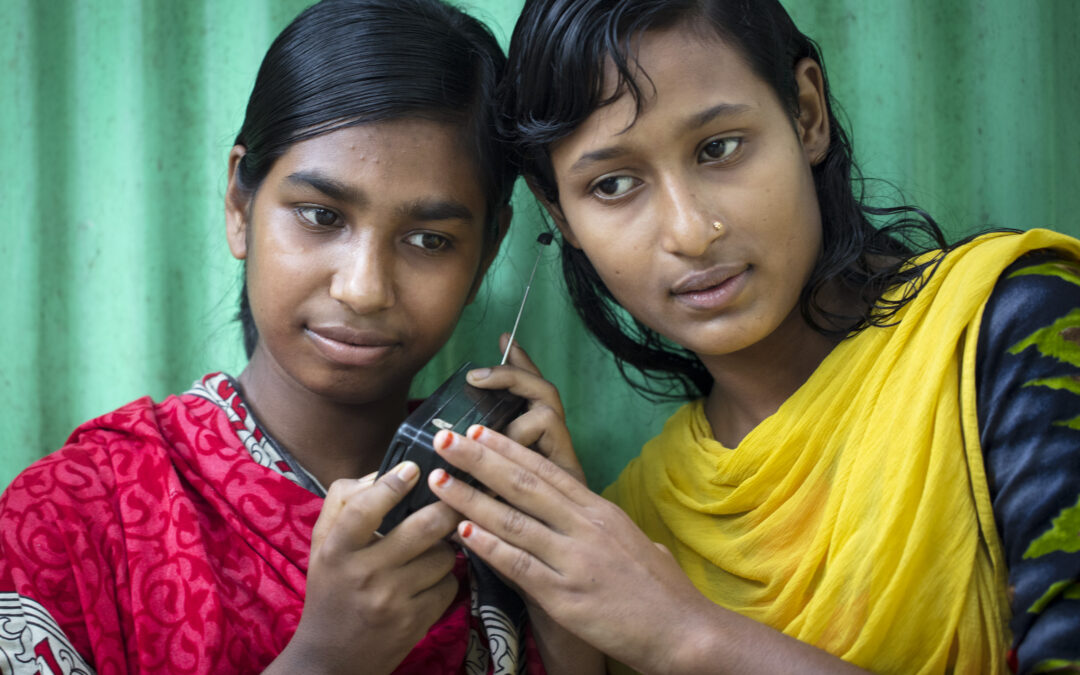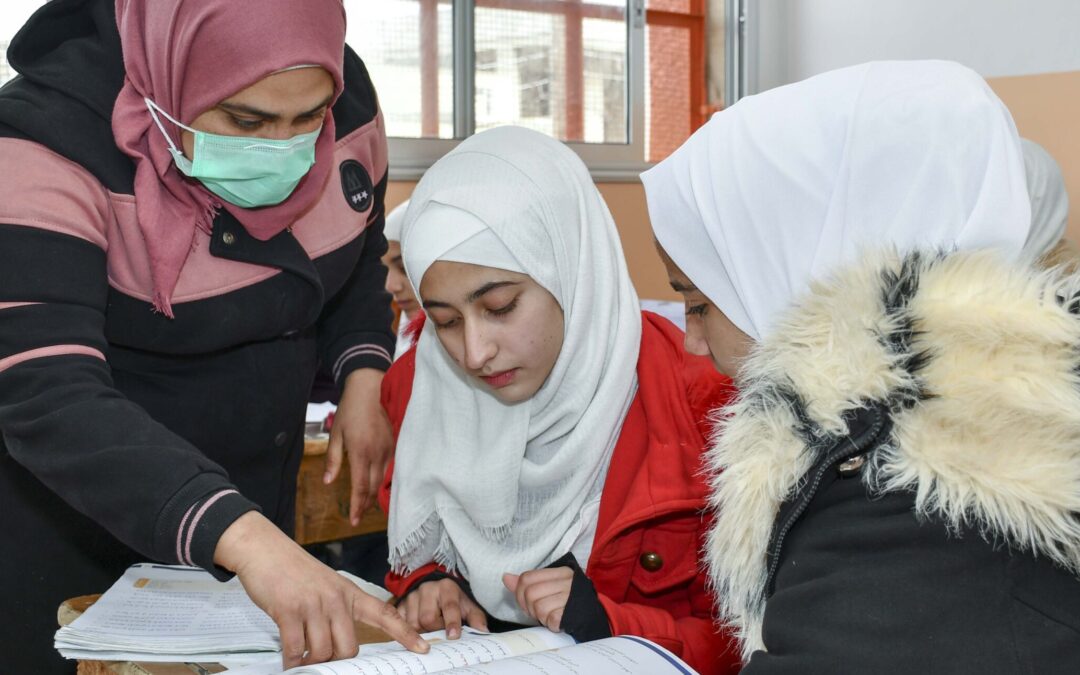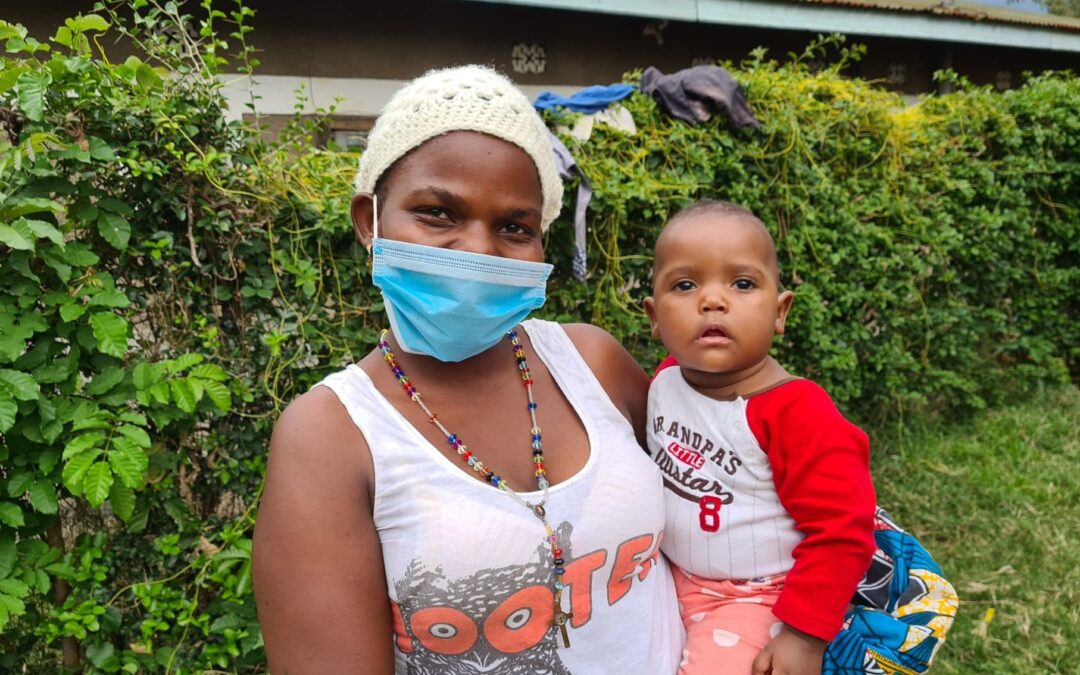
Oct 21, 2022 | Announcement
National governments are responsible for implementing Risk Communication and Community Engagement (RCCE) as a key pillar of their respective public health response, as articulated in the International Health Regulations (2005). However, civil society at all levels, together with a multitude of others including the media and private sector, should (and often do) also support the government and its partners to fulfil this responsibility.
This guidance document designed by the Collective Service provides ways to ensure predictable, sustainable and well-functioning RCCE coordination platforms, strategies and approaches that work with the government and partners, at national, state and local levels.

Oct 20, 2022 | Announcement
Summary
An estimated 13 per cent of people in low-income countries have been vaccinated against COVID-19. Accelerating COVID-19 vaccine uptake is essential if countries are to achieve the WHO target of 70 per cent vaccination coverage. COVID-19 vaccine supply is no longer a major challenge; however, low risk perception of COVID-19 in light of easing of pandemic related restrictions by governments, coupled with other competing health and economic priorities, has resulted in a decline in vaccination uptake. Additionally, suboptimal vaccine delivery strategies, low confidence in vaccines, lack of trust in health systems and authorities, and the absence of COVID-19 vaccination as a social norm present significant barriers to achieving
higher uptake. Addressing this requires political leadership and effective approaches to build vaccine demand in high-risk and vulnerable communities.
To intensify support for priority countries, WHO, UNICEF, GAVI and international partners, including the International Federation of Red Cross and Red Crescent Societies (IFRC) and the World Bank, have launched the COVID-19 Vaccine Delivery Partnership (CoVDP). The CoVDP works with governments and NGOs to devise and deliver evidence-based strategies informed by local data. To characterize and catalogue innovative, promising, and proven demand interventions, a virtual meeting was held on 22 and 23 June 2022, co-hosted by UNICEF; the Ministry of Health, Ethiopia; and the Government of Canada; in collaboration with the CoVDP and the global Vaccine Confidence Task Team (VCTT). The event
featured a high-level roundtable attended by Ministers of Health, representatives from global and regional agencies and civil society organizations, and was complemented by technical sessions focused on four areas: behaviourally informed interventions, capacity strengthening to improve service quality, misinformation, and community engagement.
Case studies explored diverse approaches to bring services closer to priority populations; the importance of formative research to inform context-specific interventions; the value of consulting and co-creating interventions with communities; and the importance of engaging in two-way conversations, including through community volunteers, women’s groups, SMS communication and community radio programming. Increasing COVID-19 vaccination rates remains an urgent task, and progress is possible where there is strong political will. The event illustrated the power of peer-to-peer learning to inspire effective approaches to solving shared problems in the field of vaccine demand.
Find below full report in English and French.

Oct 18, 2022 | Opportunities
UNICEF is looking for talented professionals for the AAP (Accountability for Affected Population) consultancies. See below opportunities and apply now!
Discover UNICEF Consultancies
Home-Based Consultancy to develop and implement the workplan of the IASC AAP Task Force workstream on capacity strengthening (210 working days between Nov 2022 to Oct 2023) – EMOPS, Geneva, Switzerland
Application: https://jobs.unicef.org/en-us/job/556213/homebased-consultancy-to-develop-and-implement-the-workplan-of-the-iasc-aap-task-force-workstream-on-capacity-strengthening-210-working-days-between-nov-2022-to-oct-2023-emops-geneva-switzerland
Deadline: 26 October 2022
Home-Based Individual Contractor to support country offices and clusters in the roll-out of the UNICEF AAP strategy (8 months; November 2022 to June 2023) – EMOPS, Geneva, Switzerland
Application: https://jobs.unicef.org/en-us/job/555155/readvertisement-homebased-individual-contractor-to-support-country-offices-and-clusters-in-the-rollout-of-the-unicef-aap-strategy-8-months-november-2022-to-june-2023-emops-geneva-switzerland
Deadline: 23 October 2022
International Consultant Support introduction of Accountability to Affected Populations, #556146, – Bissau, Bissau Guinea
Application: https://jobs.unicef.org/en-us/job/556146/readvertisement-international-consultant-support-introduction-of-accountability-to-affected-populations-556146-bissau#.Y0ltNU95FkY.whatsapp
Deadline: 23 October 2022
Individual Consultancy: Mapping of Community-focused Accountability to Affected Populations (AAP) systems in the north of Mozambique – Maputo, Mozambique
Application: https://jobs.unicef.org/en-us/job/556144/individual-consultancy-mapping-of-communityfocused-accountability-to-affected-populations-aap-systems-in-the-north-of-mozambique
Deadline: 30 October 2022

Oct 14, 2022 | Announcement
In August, YES! – the Collective Service’s Youth Engagement subgroup, led by UNICEF, UNAIDS, and the Collective Helpdesk, with the support of UN WOMEN, UNFPA and the Youth Compact put out an open call for the submission of good practices on youth engagement and leadership in COVID-19 response.
A jury composed of YES! members reviewed and rated 45 eligible good practices from over 81 submissions, coming from different regions (EAPR, ECAR, MENA, ROSA, WCAR) and submitted by local NGOs, as well as UNAIDS, UNICEF and UN WOMEN Country Offices.
Based on the scoring criteria, the 7 best-rated practices have been selected – 3 on Youth Engagement, 3 on Youth Leadership + 1 unique inter-agency good practice by UNICEF and the Micronesian Red Cross.
These will be made into case studies and practical guidance on operationalizing the lessons learned, which will be promoted to inspire organizations to use them as a reference on engaging youth in future pandemic responses.
Here are the winning good practices on Youth Engagement:
- “A day in our lives series- young people across Australia sharing their story during COVID-19.” Submitted by Multicultural Youth Advocacy Network (MYAN) Australia.
- “Adolescent Girls Education Empowerment and Participation Project.” Submitted by Global Partnership for Education (GPE) funded by UNICEF Guinea Bissau.
- “Training of Volunteers on COVID-19 community sensitization.” Submitted by Young Urban Women’s Movement Ghana.
- “How the Micronesian Red Cross Society youths led the fight against COVID in the FSM.” Submitted jointly by UNICEF and Micronesia Red Cross Society
And on Youth Leadership:
- “Jannatul Mouwa: Story of her COVID Response.” Submitted by Bindu Women Movement supported by the UN WOMEN Bangladesh.
- “Leadership skills and Economic Empowerment during COVID.” Submitted by NGO Dar Abu Abdallah (DAA) funded by UNICEF Jordan.
- “Youth-led Action Research on the impact of COVID-19 on marginalized youth.” Submitted by the Asia South Pacific Association for Basic and Adult Education (ASPBAE).
By promoting these case studies, YES! will further its efforts on advocating for the inclusion of young people and youth leadership as a part of coordination and response to future public health emergencies, as well as humanitarian crises.

Sep 30, 2022 | Webinars
Rumours about the impact of the COVID-19 vaccines have persisted in the East and Southern African region (ESAR). To address these issues, the RCCE Media Dialogue Subgroup in ESAR invites specialists to talk about the relationship between COVID-19 vaccines and reproductive health. This webinar exchanges also with journalists about how they can approach these issues in their reporting on the COVID-19 pandemic.





